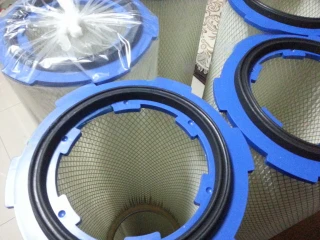 Tel:
+8615930870079
Tel:
+8615930870079
Oct . 19, 2024 11:52 Back to list
stainless steel filter element
The Importance of Stainless Steel Filter Elements in Industrial Applications
In various industrial applications, maintaining the purity and quality of fluids is crucial for ensuring optimal process performance and product integrity. One of the key components in achieving this goal is the filter element, with stainless steel filter elements emerging as a preferred choice in numerous settings. This article explores the benefits, applications, and considerations of using stainless steel filter elements.
What are Stainless Steel Filter Elements?
Stainless steel filter elements are components used in filtration systems, designed to separate particles, impurities, and contaminants from fluids or gases. Composed primarily of stainless steel, these filter elements offer exceptional durability, corrosion resistance, and thermal stability, making them suitable for a wide range of applications.
Benefits of Stainless Steel Filter Elements
1. Durability and Longevity Stainless steel is renowned for its strength and resilience. Unlike filters made from other materials, stainless steel filter elements can withstand high pressures and temperatures, significantly extending their operational lifespan. This robustness reduces the frequency of replacements, lowering maintenance costs over time.
2. Corrosion Resistance The inherent properties of stainless steel provide excellent resistance to corrosion. This feature is critical in environments where the filter is exposed to aggressive chemicals, moisture, or other corrosive elements. Stainless steel filter elements maintain their structural integrity and performance, ensuring consistent filtration over an extended period.
3. Easy Cleaning and Reusability Stainless steel filter elements can be easily cleaned, often allowing for backwashing or ultrasonic cleaning methods. This reusability not only contributes to reduced waste but also supports environmental sustainability efforts by minimizing the need for disposable filters.
4. Versatile Filtration Options These filter elements can be manufactured in various mesh sizes and configurations, making them suitable for both coarse and fine filtration. From industrial oil filtration to water treatment systems, stainless steel filter elements can be customized to meet specific filtration requirements.
5. Thermal Stability Stainless steel retains its mechanical properties under high temperatures, making it an excellent choice for applications involving hot fluids or gases. This thermal stability is essential in processes where temperature fluctuations are common.
Applications of Stainless Steel Filter Elements
stainless steel filter element

Stainless steel filter elements are widely used across diverse industries, including
- Chemical Processing They are essential in the filtration of corrosive chemicals and solvents, ensuring the purity required for chemical reactions.
- Oil and Gas In the oil and gas industry, stainless steel filters are utilized to remove particulates from fluids, ensuring the efficient operation of pumps and other equipment.
- Food and Beverage These filters are used in food processing and beverage production to eliminate contaminants while maintaining compliance with health and safety regulations.
- Pharmaceuticals In the pharmaceutical industry, the integrity of products is paramount. Stainless steel filter elements are employed to ensure the cleanliness of manufacturing processes.
- Water Treatment They play a crucial role in municipal and industrial water treatment facilities, helping to purify water and remove harmful particles.
Considerations When Choosing Stainless Steel Filter Elements
When selecting stainless steel filter elements, it is vital to consider factors such as the type of fluid being filtered, the required filtration efficiency, and the operational conditions (pressure, temperature, and chemical compatibility). Additionally, the choice between different grades of stainless steel (like 304 vs. 316) can impact performance based on the specific environment.
Conclusion
Stainless steel filter elements are invaluable in various industries due to their strength, durability, and efficiency in achieving high-quality filtration. By understanding their benefits and applications, industries can make informed choices about their filtration systems, leading to enhanced performance and product integrity. As industries increasingly prioritize sustainability and efficiency, stainless steel filter elements will continue to play a pivotal role in advancing filtration technology.
-
Types and Applications of Air Filtration CartridgesNewsJul.28,2025
-
The Role of Gas Turbine FiltersNewsJul.28,2025
-
Mastering Air Filter Cartridge UseNewsJul.28,2025
-
Advanced Turbine Filters for Modern Gas TurbinesNewsJul.28,2025
-
Cellulose Air Filter Cartridge Advantages in Dust FiltrationNewsJul.28,2025
-
Cellulose Filters for Air Particle ReductionNewsJul.28,2025

 Email:
Email:





